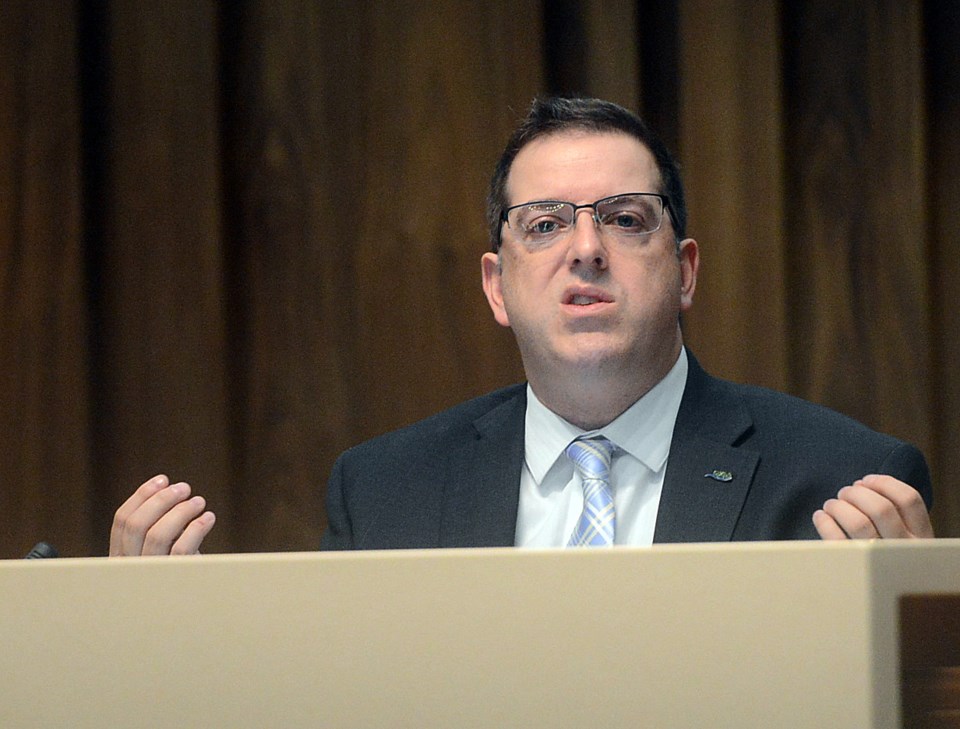The City of Guelph 2018 tax levy will increase 2.95 per cent next year.
Council approved the city’s $233-million budget during a five-hour meeting at City Hall Tuesday.
To get to that amount council rejected several staff-recommended expansions and dipped into reserve funds to the tune of $1.3 million.
But the city is projecting a surplus this year of around $2.4 million, money that will most likely go into that same reserve fund.
The 2018 budget as initially presented by staff, before the knives came out, was 4.84 per cent.
Last year’s tax increase was 3.13.
New paramedics, city waste collection at multi-unit properties such as condos and a new internal city auditor were some of the big ticket items added to the budget.
“I’m extremely impressed with what council did to land on the overall rate,” Mayor Cam Guthrie said after the budget was put to bed.
“There’s always some debate, back and forth, but where we landed is exactly where I wanted it to be,” Guthrie said.
Expansions to city services and the various independent boards got the budget to a 2.45 per cent increase. The city’s dedicated infrastructure levy was renewed at 1 per cent, the difference this year being that half of that levy will be funded through the city’s tax rate stabilization fund, the other half property taxes.
Guthrie said he didn’t mind dipping into reserve funds knowing that there will be a surplus this year.
“If the projected year-end variance was not at almost $2.4 million, I would not have been looking to use the rate stabilization reserve,” Guthrie said. “But this term of council has increased the rate stabilization reserve drastically, by millions of dollars.”
After Tuesday, that tax rate stabilization reserve still sits at roughly $6.2 million.
That operating budget passed by a 11-1 vote, with the nay vote being Coun. Mike Salisbury, who abstained from the vote in protest over concerns about the budget procedure.
That led a disappointed Guthrie to remark “I didn’t know councillors and mayors were elected to abstain from voting.”
Much of the debate during Tuesday’s decision day centred around the dedicated infrastructure levy, a special tax imposed by the city to help address the city’s backlog on essentials such as sewers, pipes, roads and bridges.
The city has heard there is a projected $2.3 million positive budge variance for 2017, which would go into the city’s tax rate stabilization fund.
Several councillors wanted to stick at 1 per cent added to property tax bills, but Coun. Dan Gibson moved 0.5 per cent.
Coun. Christine Billings then amended that, adding another 0.5 per cent, but from the tax rate stabilization fund, not property taxes.
“It’s just too much too fast,” Billings said of a 1 per cent extra on people’s tax bills every year. “Not everyone can afford large increases.”
2018 budget highlights included:
- $525,000 for waste collection at multi-residential properties ($278,000 to be funded through the city building capital reserve fund)
- $400,000 for a new paramedic shift
- $100,000 for business service reviews (funded through the tax rate stabilization fund)
- $142,000 for an internal auditor
- $46,000 for additional seasonal parks staff
- $49,500 for two City Hall security guards
- $78,000 for a waste collection operator
- $15,000 for video enhancements to council chambers
- $9,000 for councillor training
Other additions to the budget included $70,000 for security guards at the Guelph Public Library and $100,000 increase in funding for the Guelph Neighbourhood Support Coalition, to be funded through the affordable housing stabilization fund (see separate story here).
The big-ticket items rejected by council was $460,000 for increased yard waste collection and $323,000 for an affordable housing incentive program.
Overall the final budget deliberations went smoothly and in a cooperative tone.
There were a couple of bumps in the road.
At one point, Coun. James Gordon hoped council would “move from a daycare centre to a kindergarten” with increased councillor training.
Coun. Cathy Downer told Salisbury to “respectfully, please read your emails” during a discussion over the budget process, where Salisbury wanted the infrastructure levy discussed before approval of the operating budget.
Several councillors expressed concern that the infrastructure levy was decided on after the operating budget. They feel it should be done before the tax supported operating budget.
